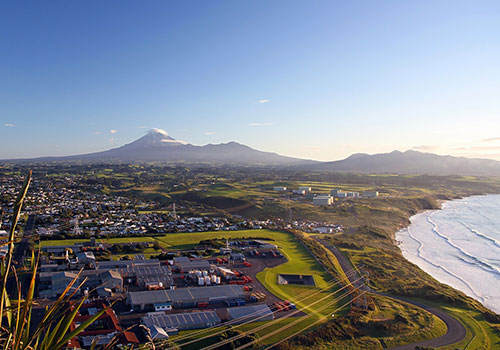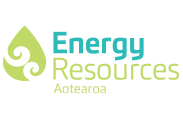Quality Jobs
Our industry is better positioned than most to step up for kiwis
- In this section:
Providing jobs in communities has long been identified as the number one way of improving the lifestyle of more and more kiwis throughout the country. New Zealand's oil and gas industry helps drive this, creating jobs both directly and indirectly through the industries, businesses and factories it powers.
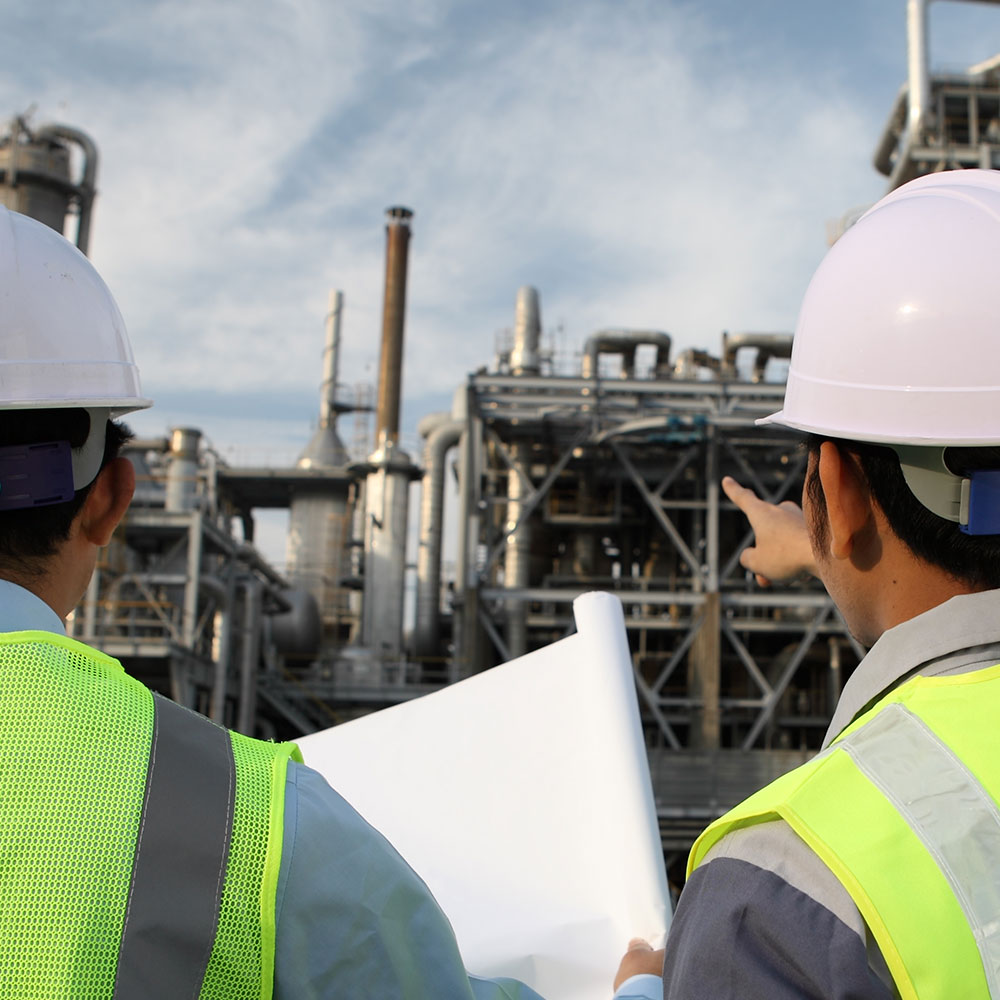
Oil & Gas generates
11000
High value jobs nationally. But where do these jobs go?
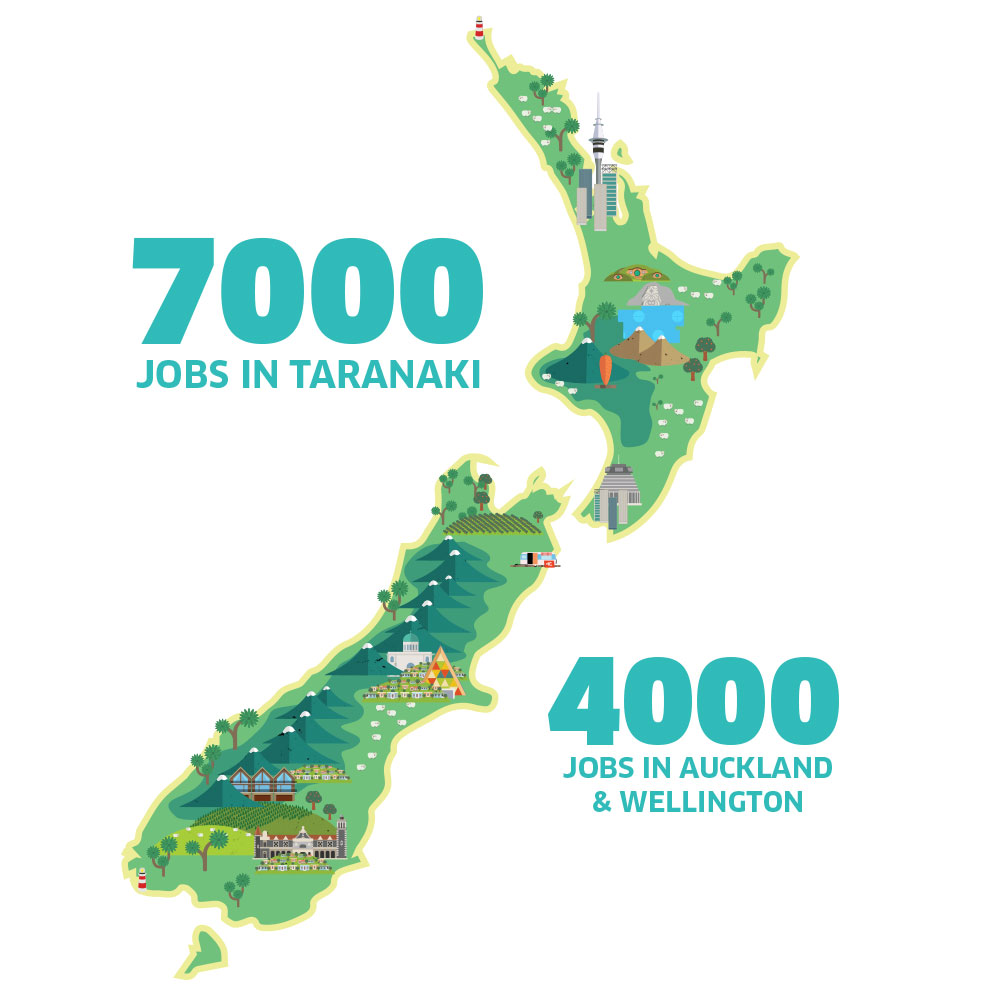
Satisfying jobs – high value and quality
1
Jobs in the oil and gas industry are generally associated with higher skill levels, higher rates of pay, and as a consequence, support higher standards of living.

Oil & Gas workers earn
2x
the national average salary
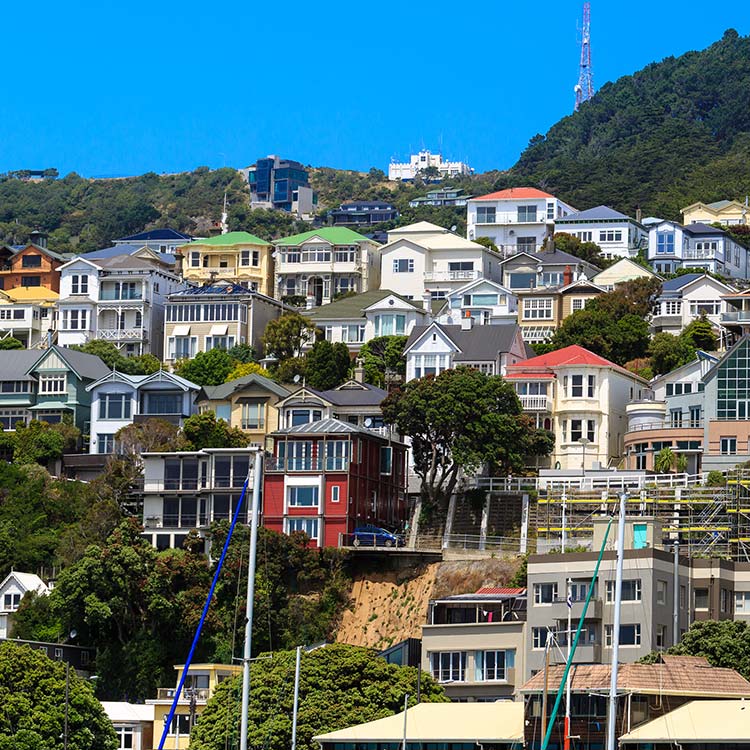
Oil and Gas workers generate
7x
more production value per hour than the average New Zealander
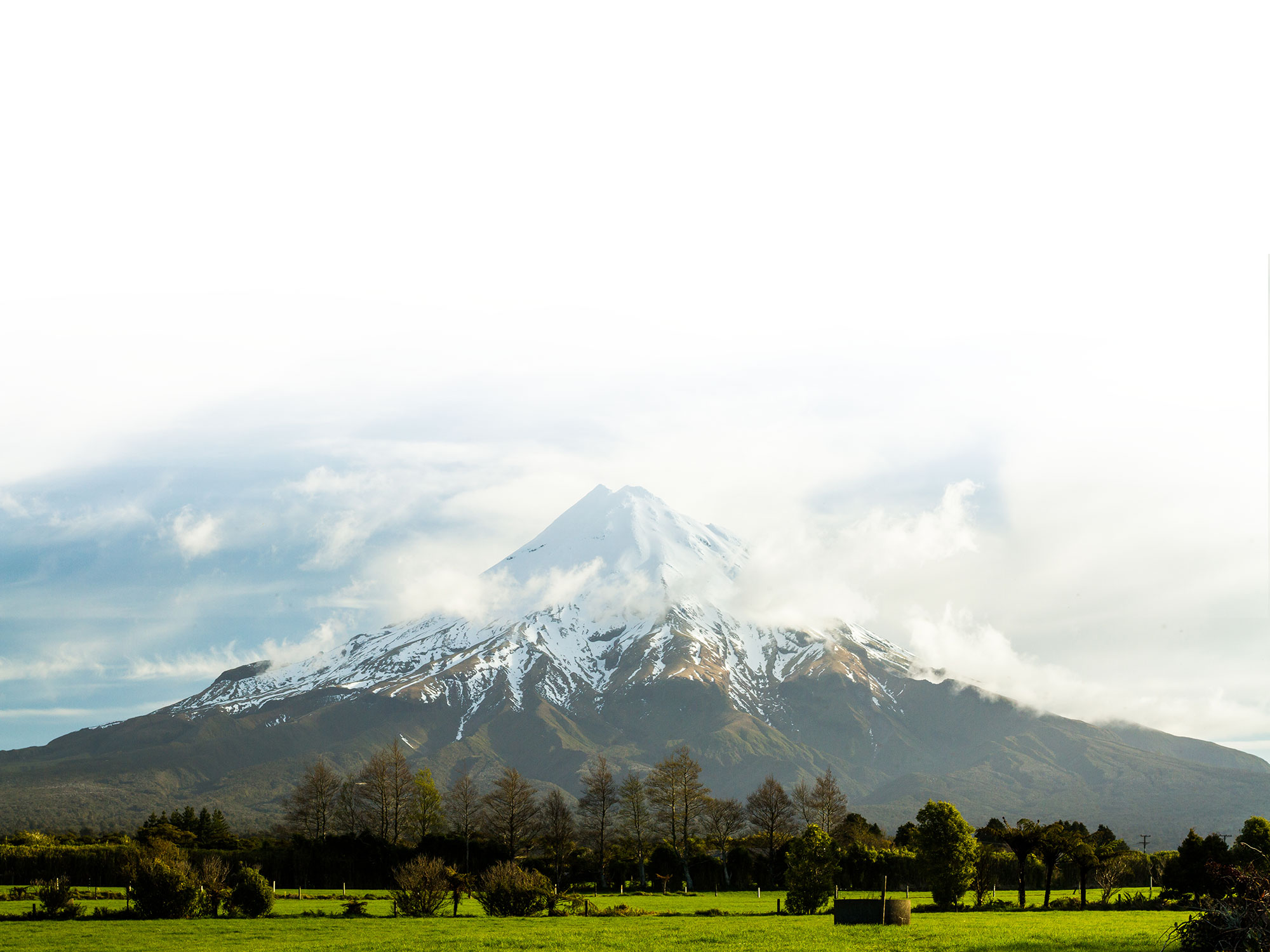
The Taranaki Story
2
A strong oil and gas industry has helped Taranaki punch above its weight.
Centred in Taranaki, the fundamental economic impact of the oil and gas industry is clear to see. It is one of the key reasons Taranaki has the highest GDP per person in New Zealand of $76,715, compared to a national average of $64,079.
Statistics show that, on average, higher skilled workers and incomes accrue to our major urban centres – Auckland, Wellington and Christchurch, drawn by large, higher value professional service industries.
Regions outside these main centres, often dependent on primary industry production, have lower rates of skilled employment and lower average household incomes.
Taranaki, on the other hand, clearly benefits from the impact of the oil and gas industry.
Taranaki’s mean average income and percentage of skilled or highly skilled workers are the highest outside our main centres, and has over the last decade experienced the lowest rates of unemployment.
Align that with a generally lower cost of living (for example average house prices or rents) and the benefits of the sector to life in Taranaki are clear.
Making careers that matter
3
Oil and gas delivers higher value job opportunities
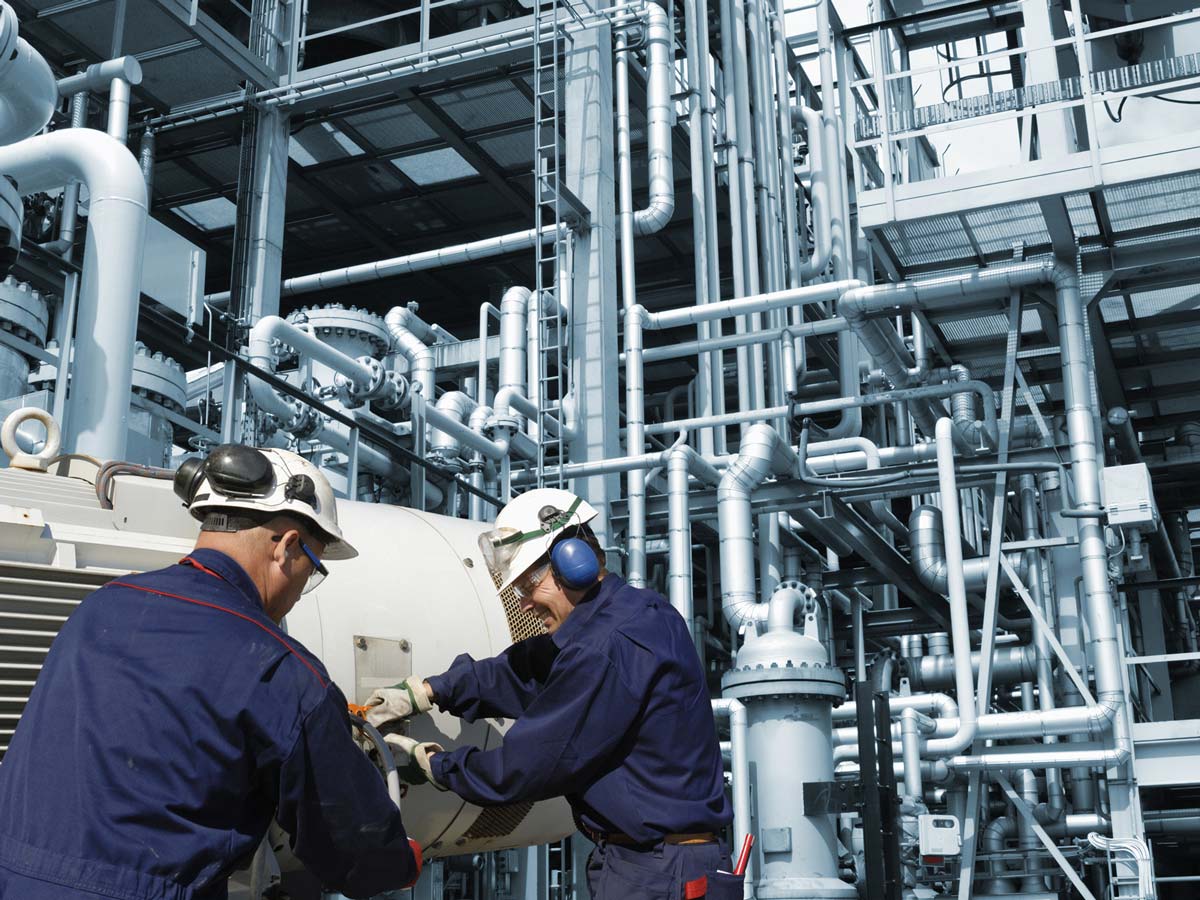
The oil and gas industry is a demanding environment, requiring highly skilled individuals at all levels of any given project - from geologists to scientists, mechanical and civil engineers, project managers and more.
These skill requirements drive partnerships between the industry and education providers around the country. Industry scholarships, papers and electives, trades and training, all introduced at tertiary level (including universities and polytechnics and through industry training organisations) result in meaningful career pathways for New Zealanders.
The presence and potential of the industry is driving knowledge and skill development across a range of disciplines within New Zealand’s research, education and business communities.
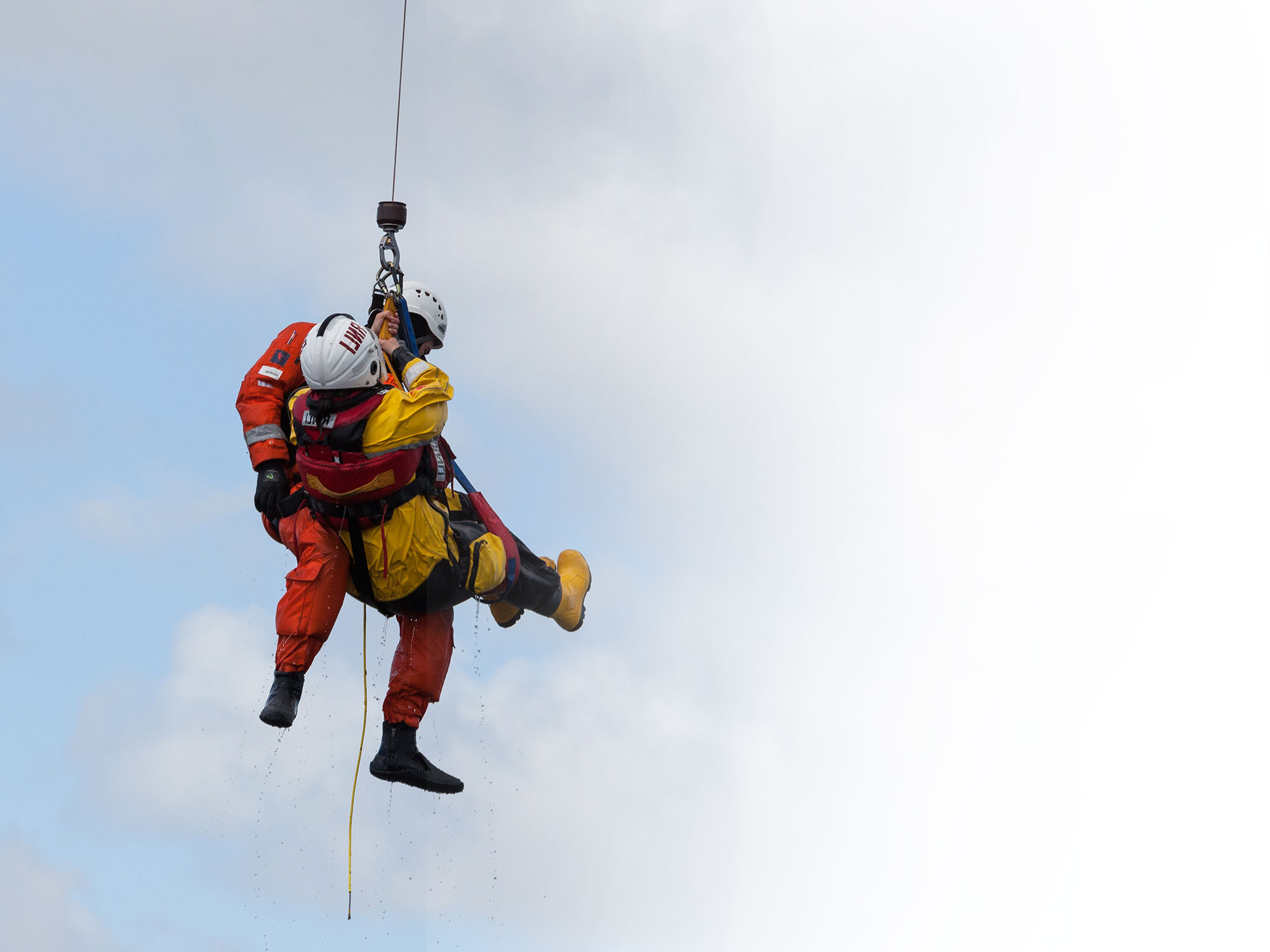
Upskilling the workforce
4
Oil and gas invests in training and education.
Energy Skills Aotearoa is committed to attracting, promoting and developing talent for the New Zealand energy industry.
This organisation consists of a collaboration between ten upstream and downstream energy companies based and operating in New Zealand.
The Association has developed several training programmes in partnership with providers, such as the Western Institute of Technology, that provide opportunities for people to gain energy level employment in the industry.
Analysis is conducted to assess where the industry skill shortage areas are at certain stages, and programmes are developed to help ensure the industry has the required labour resource.
There is also a strong commitment towards educating the community, especially schools, about the New Zealand energy industry. Initiatives include assisting in the development of curriculum, public introductory courses to the industry, secondary and university interactive days and an annual science fair.


